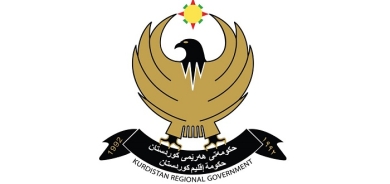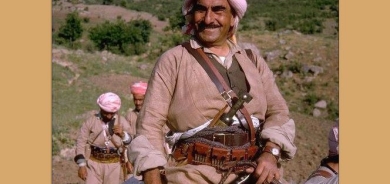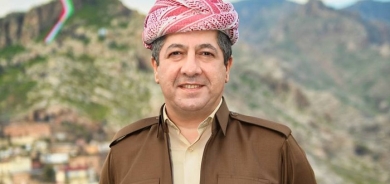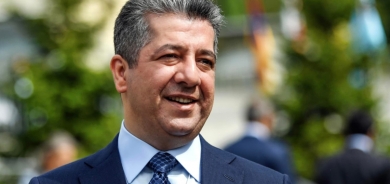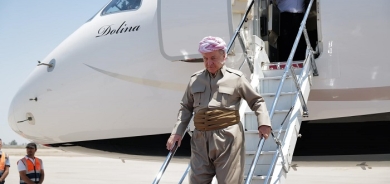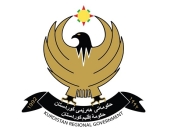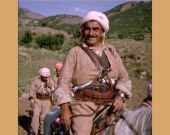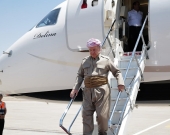United Iraq Vs independent Kurdistan Vs Islamic extremists State!

These fundamentalist extremists have already taken plenty of ground in Syria, and have taken more in parts of Iraq. It is an ongoing fight to keep them from taking cities and towns that currently lie under Kurdish control, and with areas such as Kirkuk, Peshmerga forces have had to actively beat them back in order to reassert control over the areas.
That ISIS represents a major threat is hard to deny. They have substantial numbers, and have managed to capture equipment from the Syrian and Iraqi armies. They have funding coming in from wealthy individuals abroad as well as from criminal enterprises. They have many of the apparatuses of a state, although no sane nation would recognise them as such when their only goal seems to be the conquest of as much territory as possible. They are going to be a serious threat, not just for Kurdistan, but also for Iraq, Syria and much of the rest of the world, for years to come.
That they cannot be allowed to win is also clear. Their victory would represent a serious problem, not just for Kurdistan, Iraq and Syria, but for the world as a whole. This is not a group that is interested in achieving a limited conquest, or obviously achievable political aims. Instead, it is interested in ongoing conquest of every country it touches, attacks on civilians, and the implementation of severely repressive regimes wherever it is in a position to do so.
That they would wipe out Kurdish people given the chance is not in doubt. ISIS has already engaged in instances of mass murder, and appears to see no difference between military and civilian targets. Certainly, the progressive, modern society that Kurdistan has become is the antithesis of everything they stand for. They are an opponent that cannot be simply waited out. They must be defeated comprehensively and completely.
The question is what difference becoming independent would make to the fight. There have been worries that doing so would be an unnecessary distraction from the fighting, with political conflict within Kurdistan making it impossible to put up a solid fight against these opponents. There is a thought that Baghdad might react with violence to such a move, rendering it, or Kurdistan, or both, more vulnerable to attacks from these extremists. The US in particular has identified a united Iraq as the best way to stop their spread, but are they right in that assessment?
For Kurdistan, I would suggest that the answer is no. Kurdistan already receives little or no support from Baghdad when it comes to the fight, as the Iraqi army is more interested in defending other areas of the country. There would not be a reduction in support from that quarter. Nor is it likely that Baghdad would attack Kurdistan directly, as it simply doesn’t have enough territory connected to Kurdistan to do so at the moment. It is largely cut off by a band of ISIS held territory, and engaged in its own conflict.
The move might create problems with Turkey, which wishes to ensure that its own Kurdish citizens do not break away, and which sees the prospect of an independent Kurdistan as encouraging that. There is a risk that Turkey might try to attack Kurdistan, thus disrupting the fight against ISIS. Yet that is already happening, to a great extent. Turkish planes already bomb Kurdish territory, targeting what it sees as rebels.
So in that sense, there is some potential for disruption in the fight against ISIS, but no more than is really already happening. The surrounding countries already know that Kurdistan would like independence, and they are already targeting Kurdish separatists in their countries alongside the extremists. They are already trying to present the two as equivalent to their international partners, whether those partners are the USA or Russia.
These partners seem to be convinced that a united front is necessary to defeat ISIS in the long term, but they are making two mistakes in that respect.
The first is in assuming that such a united front has ever existed in the region; that it is there to fall apart. The military coordination in the region is not based on long term friendships and alliances. There have been wars and conflicts and disagreements between the countries of the region for as long as those countries have existed as independent entities. Instead, the degree of cooperation that exists is based on the sense of a shared enemy, and on a shared commitment to dealing with that enemy. That sense will exist whether Iraq exists in one piece or two or more. ISIS will continue to be a threat to Turkey and Syria, Iraq and Iran, regardless of whether Kurdistan is independent. Their governments might make noises about not wanting to be in an alliance if Kurdistan breaks away from Iraq, but the truth is that the circumstances make it necessary. They are fighting for their own existences as much as for Iraq’s. The military alliance is not one thing, but rather a disparate collection of parts all attacking a common foe.
The second mistake the international community is making in regards to ISIS is in the underlying assumption that if they can only build a solid enough Iraq, that will be enough to stop this threat. It is true that stable regimes are less likely to fall to these extremists, and Kurdistan is stable in a way that the south of Iraq perhaps is not. Yet the sensible thing to do in that situation is not to insist on attaching a less stable part to a more stable one. That only increases the chances of instability throughout. And even if it is stable, it will not be enough, alone, to counter the threat.
The truth is that ISIS has grown too large to counter with only limited involvement by the region’s international allies. Kurdistan, Iraq, Iran, Turkey and the others are in a position to contain ISIS, perhaps even push it back considerably, but destroying it will take a much wider effort. It will take comprehensive arms supplies by foreign allies, and much higher levels of air support. It may even take troops on the ground. While I know that is an option that the governments of Europe and the USA are reluctant to contemplate, it may be the only way to finally solve things.
So the mere act of Kurdistan declaring its independence is not likely to lead to a victory for these terrorists, or even to make much of a difference to the situation. The truth is that whether Kurdistan becomes independent or not, it faces a fight that might last for years to come. Letting the possibility of that fight determine when Kurdistan becomes independent possibly puts off the decision until past the point where the moment is gone.
Image: When Peshmerga intelligence services printing the map and directions, to target ISIS/photo Wahid omer

